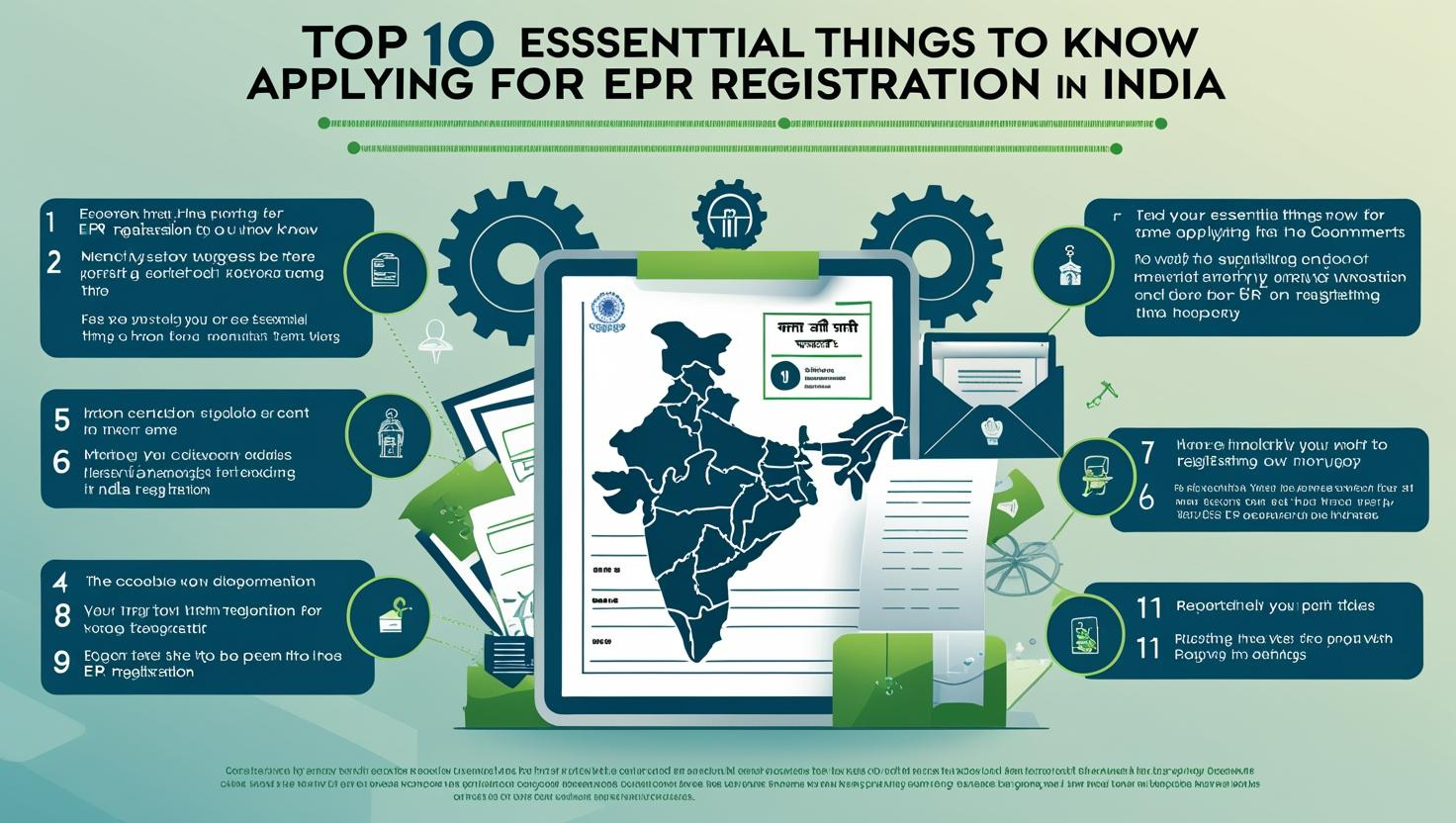In today’s world, where environmental responsibility is no longer optional, Extended Producer Responsibility (EPR) certification has become a critical need for businesses. Whether you're dealing with plastic packaging or electronic goods, understanding your obligations under EPR can help you stay compliant and build a sustainable brand.
Let’s dive deep into the key differences, regulations, processes, and responsibilities involved in obtaining EPR for plastic waste and e-waste.
Difference Between EPR for Plastic Waste and E-Waste
EPR for plastic waste focuses on producers, importers, and brand owners (PIBOs) who use plastic packaging. These businesses are required to ensure that the plastic waste generated from their products is collected, processed, and disposed of responsibly.
On the other hand, EPR for e-waste is aimed at producers and importers of electronic equipment. They must manage the end-of-life disposal of items like laptops, mobiles, printers, etc., through authorised recyclers.
Key difference:
- Plastic EPR emphasises packaging materials,
- E-waste EPR covers electronic products and components.
Both schemes promote recycling, but their implementation guidelines and waste management systems differ.
Relevant Rules and Regulations
Plastic Waste: Governed by the Plastic Waste Management Rules, 2016 (amended in 2022), these rules mandate the registration of PIBOs under the CPCB (Central Pollution Control Board) and outline responsibilities, including recycling targets, reuse mandates, and end-of-life disposal.
E-Waste: Governed by the E-Waste (Management) Rules, 2022, which supersede the 2016 rules, these regulations apply to manufacturers, importers, and brand owners involved in the production, import, and sale of electrical and electronic equipment (EEE). These rules set clear collection targets and stress collaboration with authorised recyclers.
Both rules require businesses to file annual returns and submit action plans for waste collection and recycling.
Timeline for Processing
The typical timeline for obtaining EPR registration is:
- Plastic Waste EPR: 15–30 working days (post submission of all documents)
- E-Waste EPR: 20–35 working days
Delays may occur if documents are incomplete or queries are raised by CPCB. Hiring experienced consultants or service providers helps reduce delays.
Role of PROs and Recyclers
PROs (Producer Responsibility Organisations) are third-party agencies that help companies fulfil their EPR obligations. They:
- Collect and recycle waste on your behalf
- Manage logistics and compliance paperwork
- Submit annual compliance reports to CPCB
Authorised recyclers ensure that waste is processed as per environmental guidelines. For e-waste, they often dismantle, recycle, or dispose of hazardous components using safe methods.
Working with a CPCB-registered PRO ensures your business meets targets without handling logistics internally.
Validity of Registration
Once granted, the EPR registration is valid for:
- Plastic Waste: 1 year or until the next compliance year
- E-Waste: 5 years (subject to annual reporting and target compliance)
Failure to renew or meet targets can lead to cancellation of the registration.
Always keep track of compliance timelines to avoid penalties or suspension.
Legal Consequences of Non-Compliance
Non-compliance with EPR regulations can result in:
- Fines under the Environment Protection Act, 1986
- Suspension or cancellation of your business license
- Blacklisting from government tenders or platforms
- Environmental damage claims
Businesses that fail to comply with targets or submit false documents may also face criminal proceedings.
To stay protected:
- Partner with a reliable PRO
- File timely returns
- Keep your registration updated
Final Thoughts
EPR certification is more than a legal mandate—it’s a commitment to environmental stewardship. Whether you’re managing plastic waste or e-waste, taking proactive steps to understand, implement, and comply with EPR rules not only keeps your business legally safe but also enhances your brand image. Stay informed, stay compliant.

